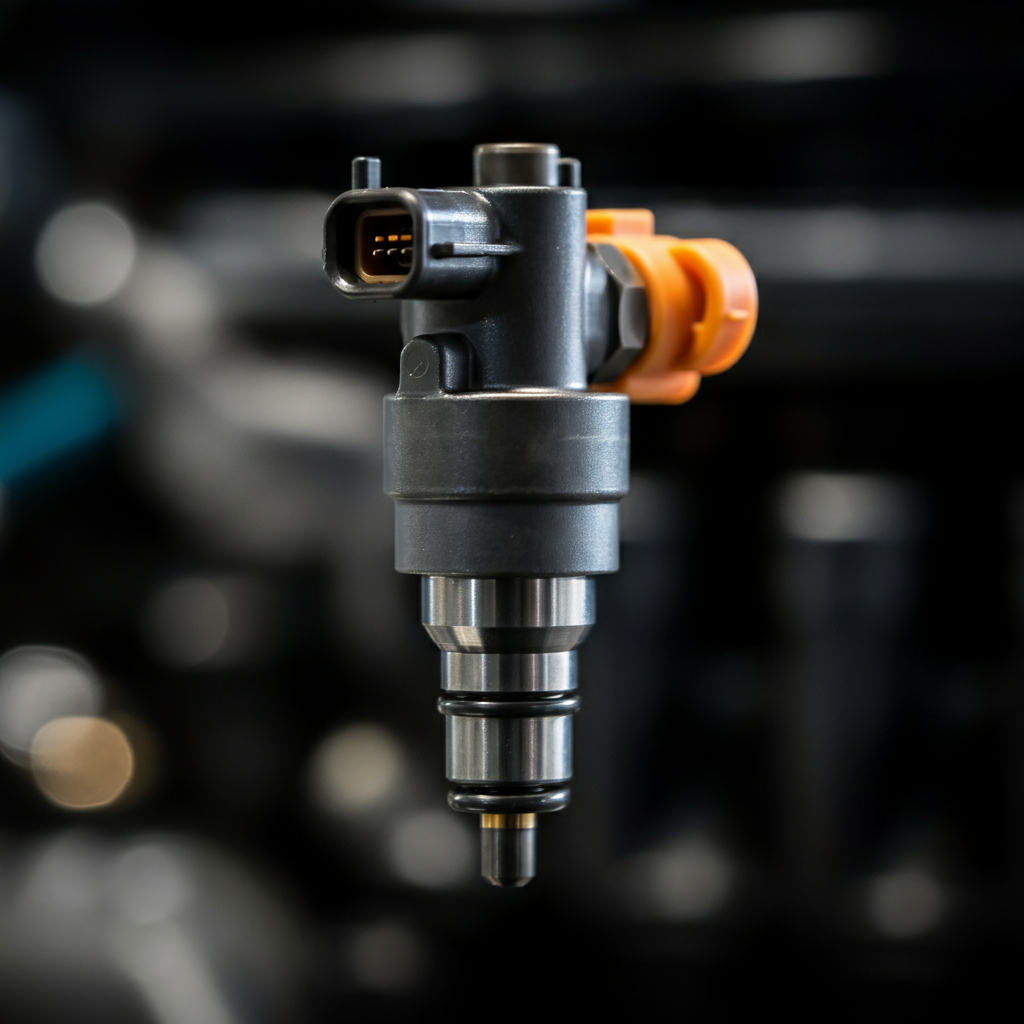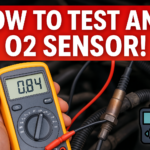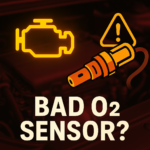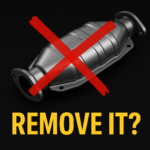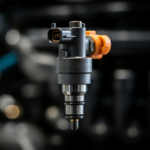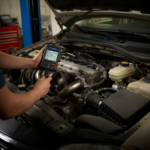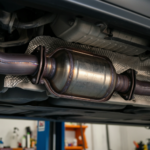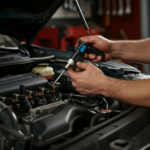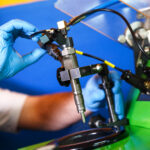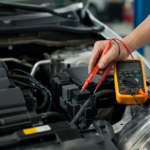Fuel injectors are a critical component of your vehicle’s engine, ensuring the precise delivery of fuel for combustion. Over time, they can become clogged, dirty, or less efficient, leading to reduced performance, lower fuel economy, and even engine damage. Whether you’re an auto enthusiast, a DIY mechanic, or a car owner looking to keep your vehicle in top condition, understanding how to clean fuel injectors and maintain the fuel system is essential.
This guide will cover everything from recognizing when your fuel injectors need cleaning to the best methods and tools for the job—whether you’re looking for solutions to tackle cleaning fuel injectors at home or seeking professional advice.
What Are Fuel Injectors and Why Are They Important?
Fuel injectors are small nozzles that atomize fuel and deliver it to the engine’s combustion chamber in the correct amount and spray pattern. This ensures the optimal air-to-fuel mixture required for efficient combustion. Clogged or dirty injectors can disrupt this balance, leading to problems such as a rough idle, poor acceleration, and even the dreaded check engine light.
If left unchecked, dirty injectors can cause reduced fuel efficiency, higher emissions, and engine damage. Regular fuel injection maintenance is key to extending the lifespan of your vehicle’s engine while maintaining performance and fuel economy.
Symptoms of Dirty or Clogged Fuel Injectors
Before we get into how to clean dirty fuel injectors, it’s important to identify the symptoms of a potential issue. Here’s what to watch for:
- Engine Misfires
When fuel injectors fail to deliver the right amount of fuel, the engine may misfire during combustion.
- Rough Idle
A noticeable vibration or sputtering when your car is idling may point to dirty injectors.
- Decreased Fuel Efficiency
Struggling to hit your usual mileage? This could be caused by incomplete fuel combustion due to clogged injectors.
- Check Engine Light
A variety of diagnostic codes related to the fuel system can trigger this warning, indicating an issue with the injectors.
- Power Loss During Acceleration
If your car hesitates or lags when accelerating, it’s time to check the fuel delivery system.
For a deeper look at symptoms, check out this detailed guide on symptoms of bad fuel injectors.
The Best Ways to Clean Fuel Injectors
Now that you know the signs of dirty injectors, let’s explore how to clean fuel injectors and the methods available. These vary depending on whether you want a professional-grade solution or a DIY cleaning option.
1. Use a Fuel Injector Cleaner Additive
The easiest and most cost-effective method is using a high-quality fuel injector cleaner added directly to your fuel tank.
- Make sure your fuel tank is at least half-full before adding the cleaner.
- Follow the manufacturer’s instructions regarding the amount of cleaner needed.
- Drive your vehicle for several days to allow the solution to work through the fuel system.
2. Fuel Injector Cleaning Kits
For a more hands-on approach, consider a dedicated fuel injector cleaning kit. These kits connect to your fuel rail and clean the injectors by running a cleaning solution through them directly.
- Follow the instructions provided with the kit carefully.
- Ensure proper safety precautions, including depressurizing the fuel system before starting.
- Kits like these are ideal for cleaning clogged fuel injectors without removal.
3. Remove and Clean Injectors Manually
For advanced DIY mechanics, the best way to clean fuel injections might involve removing the fuel rail and injectors for a professional-grade clean.
- Remove the injectors and inspect for visible dirt or carbon deposits.
- Submerge them in a cleaning solution and use an ultrasonic cleaner (if available) to remove stubborn deposits.
- Reinstall the cleaned injectors carefully.
4. Professional Cleaning Services
If you’re unsure how to clean injectors at home or suspect significant buildup, taking your car to a professional may be the best choice. Mechanics use specialized equipment to ensure a thorough cleaning process, so your injectors perform like new.
Tools and Products for Fuel Injector Cleaning
Wondering what to use to clean fuel injectors? Here are some reliable products and tools to consider:
- Fuel Injector Cleaners
Brands such as Chevron Techron, Gumout, and Sea Foam consistently receive high praise for their performance.
- Cleaning Kits
Look for high-quality kits designed for cleaning the fuel injection system directly through the fuel rail.
- Replacement Components
If your injectors are beyond repair, products like Fuel Injector O-Ring replacements from AutoZone can keep your system functioning optimally.
How to Clean Fuel Injectors at Home Step-by-Step
If you want to try cleaning fuel injectors at home, follow these steps:
Step 1: Gather Supplies
You’ll need a fuel injector cleaning kit, a high-quality fuel injector cleaner, and gloves for safety. Make sure your workspace is well-ventilated.
Step 2: Depressurize the Fuel System
Locate the fuel pump fuse and remove it while the engine is running to release pressure from the system.
Step 3: Connect the Cleaning Kit
Attach the cleaner to the fuel rail according to the instructions provided.
Step 4: Start the Cleaning Process
Run the cleaning solution through the injectors by starting the engine. Ensure everything is tightly connected to avoid leaks.
Step 5: Inspect for Improvement
After cleaning, test-drive the vehicle to ensure smooth acceleration and fuel efficiency.
Step 6: Replace the Fuel Filter If Needed
If problems persist, a clogged fuel filter may be preventing fuel flow.
How Often Should You Clean Fuel Injectors?
Regular maintenance is key to keeping your fuel system healthy. As a rule of thumb:
- Add a fuel injector cleaner every 3,000–5,000 miles.
- Perform a professional cleaning every 30,000 miles.
Proper care will extend the lifespan of your injectors and improve your vehicle’s engine performance.
Final Thoughts
Understanding how to clean fuel injectors and maintain your fuel system is essential for smooth rides and long-lasting engine performance. Whether you’re a seasoned DIY mechanic or a first-time car owner, the best way to clean fuel injectors is within your reach. Regular maintenance, high-quality fuel, and periodic inspections will keep problems like clogging and inefficient spray patterns at bay.
If you’re experiencing any symptoms of dirty or faulty injectors, don’t hesitate to address issues early to avoid costly repairs. For a step-by-step guide to diagnosing injector problems, explore symptoms of bad fuel injectors.
For replacements and tools, check the latest deals on injector components from trusted retailers like AutoZone.
